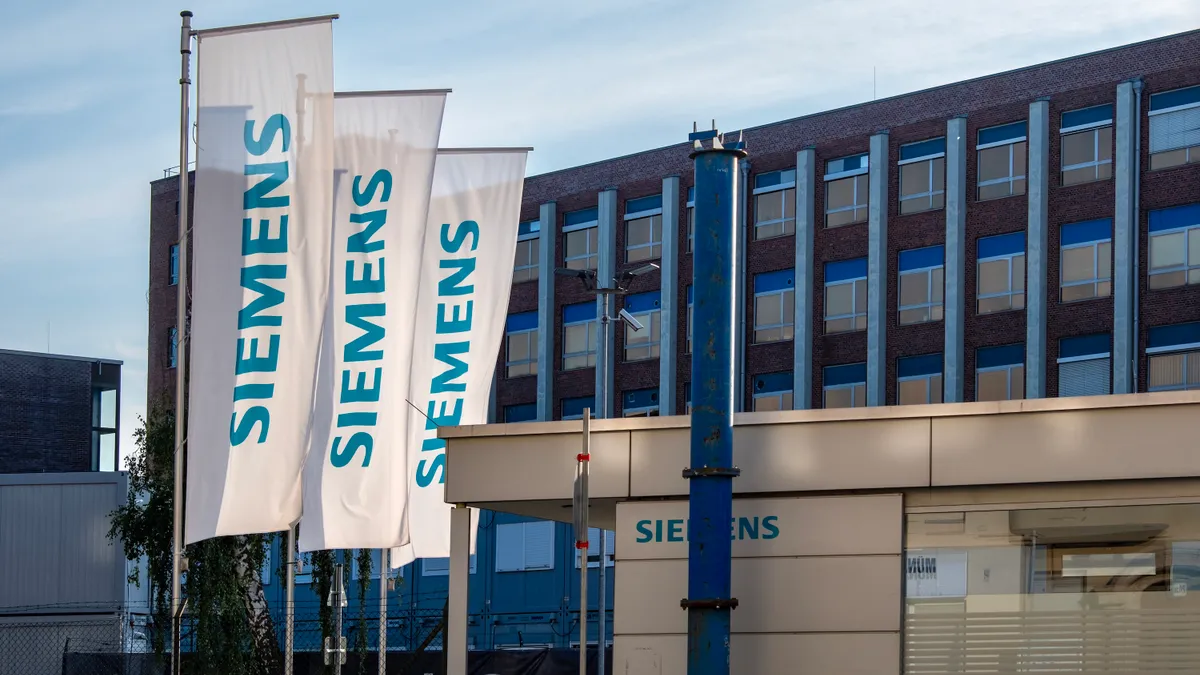Dive Brief:
- VMware took legal action against Siemens AG and its affiliates for violating software licensing conditions, filing a complaint for copyright infringement with the U.S. District Court for the District of Delaware on March 21.
- The lawsuit stemmed from a dispute between the two companies that arose when Siemens requested a one-year renewal of VMware maintenance and support services in September. In its request, Siemens listed “thousands of copies of VMware products for which it had never purchased a license,” VMware said in the complaint.
- VMware, which was acquired by Broadcom for $61 billion in November 2023, is seeking an injunction restraining Siemens from continued use of unlicensed products, as well as damages and profits attributable to the infringement, according to the filing.
Dive Insight:
The legal dispute reveals the tensions that can lurk below the businesslike surface of enterprise vendor relationships and the potential perils of software licensing restrictions.
Companies that violate tech vendor licenses risk massive bills, Forrester said in a Tuesday blog post, framing the lawsuit as a “stark reminder that poorly governed software licenses and assets” can be costly for both parties in such disputes.
“The result is a legal battle certain to cost both companies millions in attorney fees and litigation costs,” the analyst firm said.
Software audits and subsequent reconciliation processes, commonly referred to as “true-ups,” can unearth millions of dollars in unpaid bills. The number of organizations that owed $10 million or more after a vendor audit nearly doubled last year, according to a Flexera survey.
Siemens wasn’t subject to a formal audit. The technology company self-reported its VMware usage in the September renewal request for support services. The accounting was amended to align more closely with VMware’s assessment in an October follow-up letter and Siemen’s resisted an independent audit, the complaint indicated.
Both companies declined to comment on the pending case, via emails sent to CIO Dive Thursday.
Audits are a common vendor practice. Half of organizations reported at least one Microsoft audit over the three years preceding Flexera’s 2024 survey. IBM, Oracle and SAP were also noted as frequent auditors in the report.
“‘True-ups’ are often negotiating tools for vendors,” Forrester said. “They can start with a request for a software audit but often then lead to finding unlicensed software that the business either needs to pay for or discontinue use of.”
A shift to usage-based SaaS billing models for bundled services has complicated vendor management processes.
When Broadcom ended VMware perpetual licenses and trimmed the sprawling virtualization software provider’s suite down to four bundles shortly after the acquisition, some customers reeled from the cost increases. AT&T filed suit for injunctive relief and extended support services last year in a case that was settled out of court.
“License changes, product bundling changes and major infrastructure paradigm shifts can introduce a mismatch between what someone has paid for and what they should have paid for,” Forrester said.
Siemens originally purchased VMware under a 2012 license and service agreement that was subsequently extended by three years in 2021, according to the court document.
VMware contended that the terms of the original license were violated by Siemens but agreed to provide support services conditionally while reserving the right to seek compensation at a later date.
“The license agreements make clear that Siemens AG is responsible for any downloading, copying, distribution, deployment or use of the VMware software products and the license keys needed to activate and operate them,” VMware said in the complaint.












